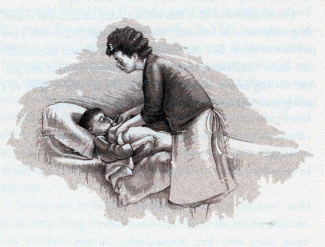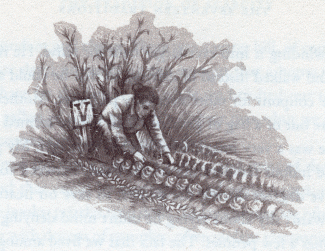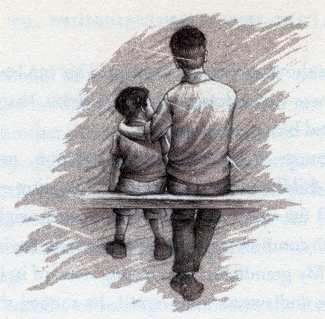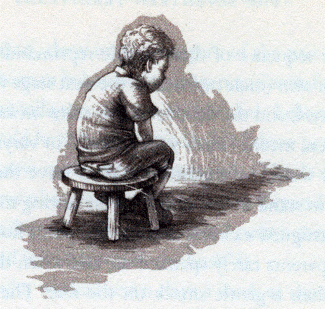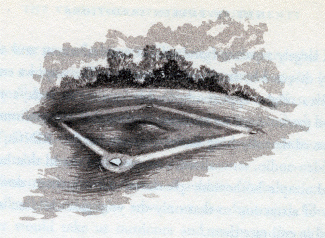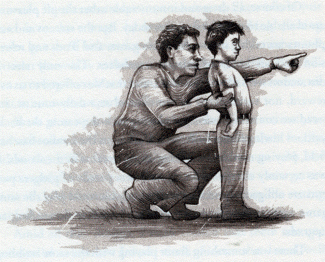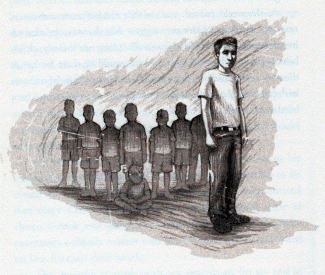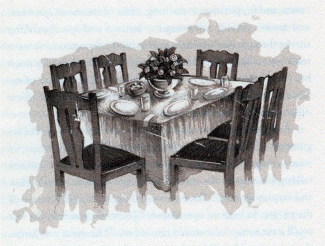
The Wall Street Journal once devoted an entire editorial to the subject of my mother. After another paper ran a story noting that she sometimes sent us off to school with a handful of chickpeas -- instead of candy, presumably -- and scraped the sugary frosting off of birthday cakes, the Journal took my mother to task for her "puritanical" ways. We did not take exception to my mother's attitudes toward food; in fact, the cake-scraping eventually became a family joke. For some bizarre reason, though, she evidently got under the skin of the hidebound reactionaries at the Journal. (Maybe they'd just run out of complaints against me.)
My mother was highly amused by the screed. She was so far ahead of them and their adherents regarding what food is all about. And what it's all about is not just food. For Mother, the family table was a mosaic of sights, scents, and tastes, of talking and teaching, of health, culture, beauty, history, stimulation, and delight. For Dad, it was a time to pepper us with questions, never thinking for a moment that they might have been over our heads. So what about the leader theory of history? he would ask. Do leaders make changes, or do they largely reflect dynamic pressures on the ground? Or: How did the Treaty of Versailles affect the economic conditions facing a devastated Germany after World War I? Much of our upbringing happened in our compact kitchen -- tucked between two pantries in our Winsted home and at our family table.
Mother invented a wide variety of recipes, using her own intuition and judgment, the way her forebears did. Our diet was heavy with different kinds of fresh beans, vegetables, fruits, grains, lamb, and fish. Among my favorite dishes was Shaykh il Mihshee ("the king of stuffed food"), a baked eggplant stuffed with minced lamb, pine nuts, and onions, garnished with tomatoes and served on long-grain rice with a tossed salad. Mother did not like fatty foods. She never fed us hot dogs, not because she knew they were bad, but because she just didn't know what was in them. She believed in serving a healthful variety of simple foods, and didn't like to fuss over food. She cooked quickly, washing her utensils as she went along, preparing food from scratch -- no canned foods or processed meats and grains. And she held to the rule -- everything in moderation -- even our morning cod liver oil (yikes!).
In the Arabic language, words of endearment are derived from the world of food. "How delicious you are," parents tell their children, or "How tasty," or "How tender." Sounds funny in English, but in Arabic such comments are ancient, routine, and heartfelt. As much as she loved us, though, my mother never asked her young children what we wanted to eat. Why? Because "young children don't know what is good for them," she observed after we were grown. "They don't have to like what they eat; they just have to eat it." We were expected to eat everything on our plates. "If children find out that not eating will bring lots of attention, men they will frustrate their parents by making a scene again and again at the kitchen table," she said. "Parents must not lose control here, or else they will have a scene often at dinnertime." But she knew that children also have an acute sense of fair play. "Parents should eat the same food as their children," she believed. "No double standard."
I think of those words of hers whenever I'm in an airplane or a restaurant and I hear parents ask their young children what they want to eat or drink. We've all heard the worst possible responses to these questions: "I don't want soup," or "No, I hate carrots!" or, far worse, "How many times do I have to tell you, I want a Coke for breakfast! Or a cupcake! Or donuts!" Many parents seem unable to put an end to such officious rejections, and all too often surrender to their children's demands. The kiddie-food marketers have taken control of these children, and there seems to be no level of reasoning capable of breaking their hold.
Even those moms and dads mindful enough to mouth a few nutrition-is-good-for-your-body platitudes are easily defeated by a few choruses of Why? from their kids. The intensity of contemporary mass merchandising, aimed directly at children, has dampened their respect for the adults around them, weakening their sense of parental authority. Our family table wasn't without the occasional bout of resistance, of course; after all, kids are kids. But my mother always had a response at the ready. She knew how much we were interested in history, for instance, so if we balked at a dish that was rich in vitamin C, she would tell the story of how the sailors of olden days grew sick from scurvy until someone discovered that sucking lemons on board ship brought salvation from the disease. Or how desert Bedouins could survive for a long time on a diet made up largely of dates or figs. Most of the time, though, she would lean over us intently, looking into our eyes, and answer our Whys with a firm "Because it is good for you." The underlying message, of course, was: I'm your nurturer and I want the best for you.
And when that didn't work, Mother was capable of cutting right to the point: "What does your tongue have against your heart, lungs, liver, and kidneys?"
The family table was an ideal place to teach us manners and respect, a task for which my mother drew on her endless supply of food-related proverbs and sayings. Some of them were simple rhymes, easy to remember: As the ship goes out to sea, I shovel my food away from me. Others were Arabic proverbs that applied to more than table manners, like He who takes too big a mouthful shall find it difficult to swallow (it sounds much more melodic in the original). She preferred not to reprimand us directly, which would have been humiliating. Sometimes a lift of her eyebrows conveyed her message eloquently. But we also knew that if we ignored her signals, she would make herself clear. We learned not to take food before the guests were served, and to respect our elders by behaving ourselves at the dinner table.
Mother paid attention to the flavor of food, and to its taste, texture, aroma, and appearance -- attributes that, to her, added up to its "bouquet." Her blend of tasty nutrition calmed us down and made us more receptive to the challenging conversations and stories that garnished our dinner table. Years later, when we persuaded her to write down some of her thoughts about family and child rearing -- along with some nuggets of wisdom and insight from my father, and a selection of recipes from our childhood -- the result was a volume called It Happened in the Kitchen. Phil Donahue invited Mother and me to talk about the book on his show in 1991, and we were pleasantly surprised by the response, both in the studio audience and from around the country. They loved the show's old-fashioned tempo, its plain talk, and the authentic common sense born of the experience of generations. Within days, the book had sold fifty thousand copies.
This connection was further strengthened when Aunt Angele, my mother's younger sister, immigrated to this country shortly after World War II. She brought with her the history of the twenty-five years since my mother had left Lebanon, and shared it with us at her new home near ours in Connecticut. Her hospitality and sumptuous tables were a centerpiece of our lives throughout the thirty-four years she lived there; it was there that we witnessed her love of the Arabic language, and the fondness for Arabic poetry, songs, and proverbs that she shared with her sister. At family occasions, such as weddings and birthdays, she demonstrated a distinctive talent for poetic expression herself, and further enriched our appreciation for the beauty of language.
It occurred to us that families all over our country could do the same thing we had done -- to collect the stories and wisdom of their parents, grandparents, and even their great-grandparents before they are lost forever. The resource of generational history is accorded little attention in our society, which seems ever more obsessed with making "new" and "better" synonymous. From my family I became aware of the importance of passing along wisdom from one generation to the next. Yet despite the increasing proliferation of digital recording and other communication technologies, we're passing on less knowledge today than our parents did through the oral tradition alone. We're drowning in photographs and videos, capturing every mundane moment of our birthdays, holidays, and vacations. Yet these can be no more than pleasant distractions, only scratching the surface of our real relationships.
I'm reminded of all of this when I think back on our maternal grandparents in Lebanon. My siblings and I have only a few pictures of them. But the times we shared on our memorable visit there -- harvesting fruit from their small orchard and garden, sharing stories around their large dinner table -- gave us a lasting sense of connection to them, and to each other.

